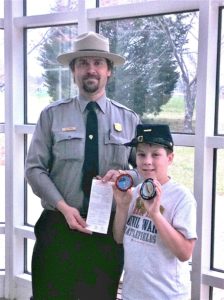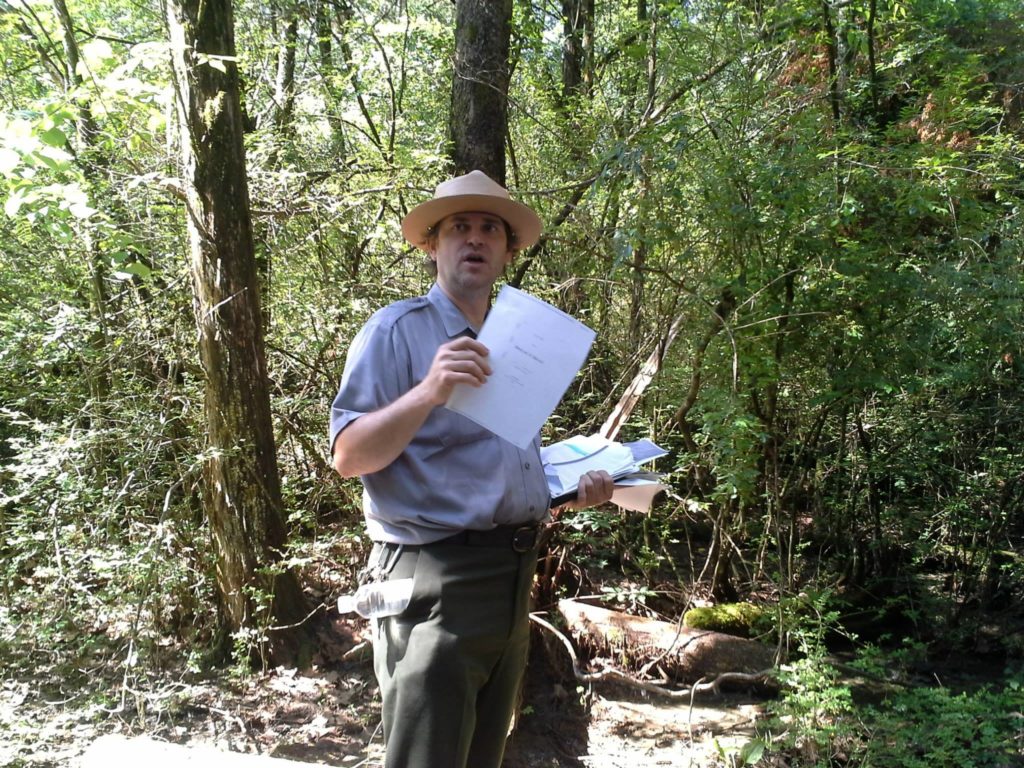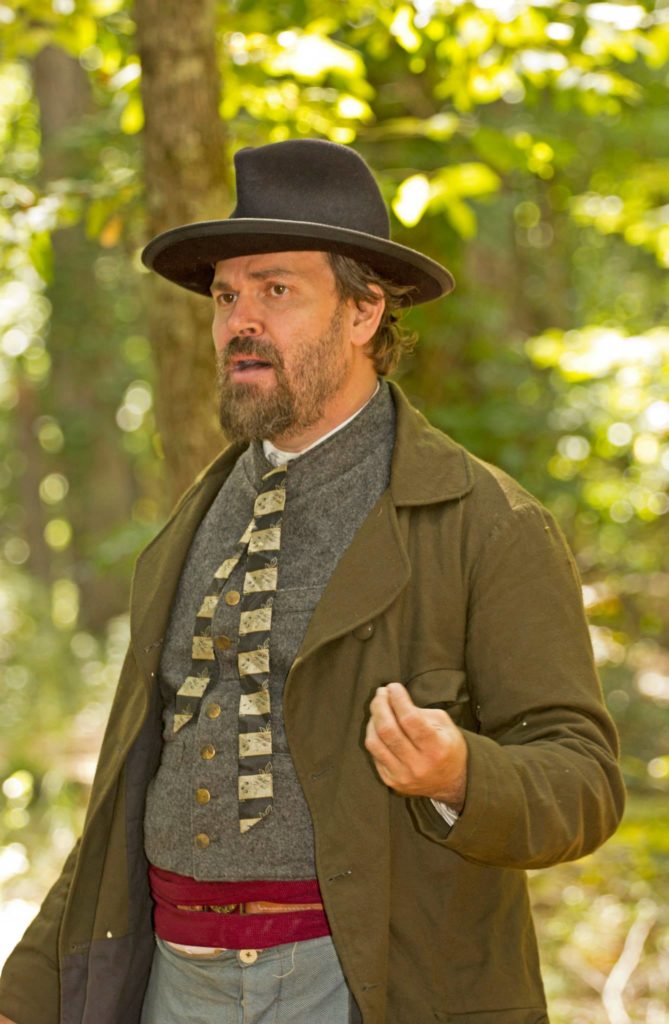Lee White serves as a park ranger at the Chickamauga and Chattanooga National Military Park, where he gives tours and offers other programs. He’s written several books, including The Battle of Franklin, November 30, 1864, as well as articles and essays, and he has spoken to many groups, including roundtables and historical societies. He also leads tours with BGES, including the upcoming “Wizards of the Saddle,” on August 16–18, 2022. All in all, he has contributed much to the dialogue of the Civil War, and he is helping to foster its interest in future generations. The BGES Blog caught up with Lee to ask him about his interests and contributions.

BGES Blog: Tell us briefly about your career in the NPS. What are the highlights? What memorable projects were you involved in?
LW: I have been fortunate enough to work for the National Park Service at Chickamauga and Chattanooga for almost 22 years, I started volunteering there when I was a teenager, then in college I worked there as a summer job, and then a short time after graduating I landed a permanent position there. Highlights are always getting to go out with groups to explore the field and share the stories I have learned over the years. Beingable to be here during the 150th anniversary, though, is a notable highlight. A lot of blood sweat and tears went into it and to see it pay off with huge numbers was great. I was also proud to have worked with the development and filming of our interpretive film, The Campaign for Chattanooga: Death Knell of the Confederacy.
BGES Blog: You have been involved in the group “The Emerging Civil War.” Tell us about the rising stars and some of the best of the new generation.
LW: It’s been an honor to work with Chris Mackowski and the rest of the team at ECW. The group’s vision was to give an opportunity to many rising stars and also to tell the stories of often-told tales but in a new and insightful way, along with presenting the story of battles that had not received much attention as well. The team that’s assembled has a lot to offer: Many public historians, some NPS and not, as well as some who are just making their way into academia. I think that’s an important blend, and taking cutting-edge research and presenting it to the public in an understandable way. The talent is incredible, and I can’t really single out anyone alone, they are all breaking new ground.

BGES Blog: You have written the book Battle of Franklin. What makes your book a must-read publication? Do you have any others in mind? Tell us three things about the people and places of Franklin that most people do not appreciate.
LW: I wanted my book on Franklin to be a quick and comprehensive read, but also one that presented the most up-to-date research on the campaign and shone a light on some ignored aspects of it, such as Hood’s move through North Georgia and Alabama.
Franklin struck a chord with me when I first visited there as a kid, and it was a story I really wanted to tell. I have several ideas for others. At the front of the line is one about Patrick Cleburne, but not a whole life biography, but a study of the last year of his life,
starting on November 25, 1863, till his death on November 30, 1864. So fittingly ending at Franklin.
Three things not appreciated—well almost anything related to John Bell Hood. His life has become so enshrouded with myths. Next, I would say, the mindset the Army of Tennessee was in when it went into Tennessee, knowing the high stakes and having seen desolation in North Alabama and up to the edge of the Plantation district around Columbia, Tennessee, the handwriting was on the wall, and they were desperate to change it. Finally, I would say theUnited States forces. Until recently, the story of Franklin seemed to be told with only one side, and it’s good to see the men of the IV and XXIII Corps finally getting attention, so I tried to add to that as well.
BGES Blog: You have a huge following on social media. Where did you make so many friends? What groups should Civil War buffs be a part of? How do we find you?
LW: I have a foot in many worlds, so to speak, I have friends from the reenacting world, from the regulars who visit the Chickamauga and Chattanooga NMP, Civil War Roundtables, folks who enjoy my books and blogging, and also ones from BGES as well. There are a lot of groups, some good and some not so much, but here are some of my favorites: The Battle of Chickamauga Discussion Group, Stories of the United States Colored Troops, The Killer Angels, Shelby Foote, and the American Civil War, Clint Richardson’s American Civil WarGroup, and The Atlanta Campaign History and Discussion Group.

BGES Blog: BGES has benefitted from your consideration, and you have run three or four online fundraisers with the proceeds benefiting BGES to the tune of several thousand dollars. What is your relationship to BGES? Why do you select BGES for your charitable interest?
LW: I have done several tours for BGES on both the 1864 Tennessee Campaign and the Stones River Campaign. I think the BGES does a lot of good work both in education and helping out battlefield sites.
BGES Blog: You have also led some BGES tours. Which is your favorite? Why?
LW: So far, the recent one on the battle of Nashville and the CS retreat from Tennessee. I enjoyed taking folks out to see some sites that don’t get much attention and even less visitors, some of those in nearly pristine condition.
BGES Blog: What is still on your bucket list with the Civil War, history, and life? What would you tell people who are interested in becoming involved in Civil War preservation and education?
LW: I still have a few battlefields to get to, mostly in the West: Honey Springs, Valverde, and Glorieta Pass, notably. I also have more writing projects that I want to do, as already mentioned the book on Cleburne, but also I would like to do something on the Battle of Resaca and some
unit histories, etc.
As to preservation and education, nothing beats being on the very ground to tell the story of a battle, and indeed to fully understand certain aspects, you have to be on the ground, so it’s incredibly important to save these lands.
BGES Blog: Do you have anything else to add? What did we miss?
LW: Nothing that I can think of, other than to continue to read and get out and explore the battlefields.
You must be logged in to post a comment.